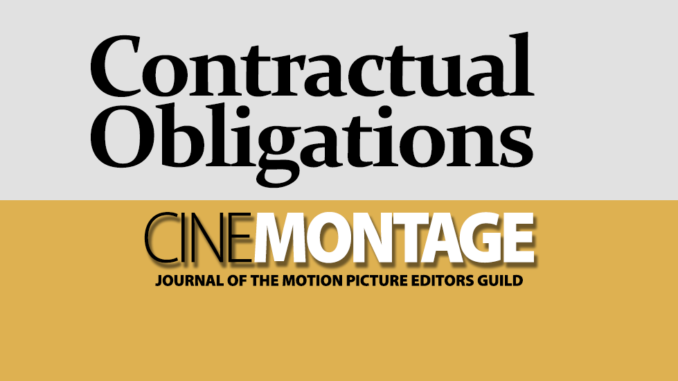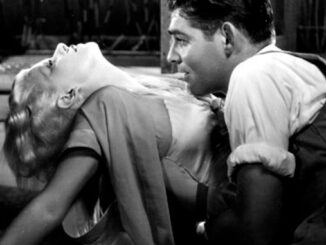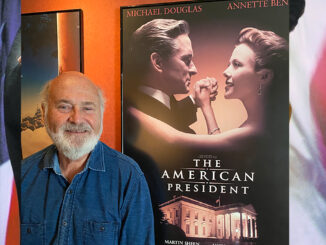
by Scott George and Paul Moore
As part of the IATSE union, the Editors Guild is fortunate to have plentiful resources to offer many benefits for our membership. These include training, seminars, mixers and screenings, to name a few. This is understandably a vital part of how the Guild assists the members, but it’s important to remember the fundamental priority we have as a labor union: ensuring that terms and conditions of the Collective Bargaining Agreements under which our members work are being adhered to. This is essential in representing the membership.
As your Western Executive Director and Eastern Executive Director, our primary focus is to maximize all efforts in the coordination of contract enforcement, including overseeing the field representative staff.
There are myriad contracts: Post-Production Majors, Post-Production Independent, Post-Production Majors New York, Low-Budget Theatrical, Videotape Supplemental, New Media Sideletter, HBO/Showtime/Starz, Endemol, Cranetown and Story Analyst, to name a few. Many of these are Single-Production Agreements, with Memoranda of Agreements that modify provisions covered in the term agreement. If that’s not complicated enough, some of these agreements also have different tiers that are tied to budgets, length and subscriptions.
Understanding the difficulty members endure when trying to navigate through all these contracts — even if only to determine the scale guarantee — required us to look at how we can more effectively provide all the pertinent details of the project’s contractual guarantees. With the Guild having over 8,100 members, it was clear that our field representatives’ site visits and responses to member questions via phone and e-mail only reach a small percentage of our membership.
Throughout 2018, the New York office regularly requested payroll reports at the conclusion of projects to conduct a payroll audit. We have added George Camarda, who has an extensive background in payroll, to our New York office to assist with this effort. This has helped to ensure that member wages and benefits have been paid correctly.
In addition to wage and benefit issues, it is also common to find mistakes in how Night Premiums, Housing Allowance, Per Diem, Idle Pay and Box Rentals are paid. Determining and resolving these violations allows the Guild staff to educate the affected member and producer on their contractual obligations.
With the Los Angeles office having such a large number of members, we focused on finding ways to proactively inform the members and producers of the shows’ specific contractual obligations. In the new position of contract administrator, Fred Arteaga assists in supporting this objective.
Many of you have probably received an e-mail informing you about the specific contract for your show if you worked under the Low-Budget Agreement or Single-Production Videotape contract. We focused on the contracts for shows identified as frequent violators. The e-mail highlights the most common provisions that members need to know (overtime, night premiums, turnaround, wage rates, vacation, holiday, etc.). It’s also an opportunity for field representatives to introduce themselves to you as the Guild contact for additional contract questions, or to request a site visit.
In addition, each producer signed to the individual project is contacted to discuss the terms and conditions of the contract, as well as to answer any questions they may have. This has been very helpful in ensuring that sound and music are not overlooked in the Low-Budget and Single-Production Videotape contracts.
Additionally, we will be looking to expand this form of communication with the membership throughout the year by adding all Single-Production contracts and some of our term agreements as well.
This form of enforcement has yielded very successful results, but does not include current open grievances and audits that are still in review. It should also be noted that this does not include member support that field representatives provide to prevent foreseen violations. Being notified of improper staffing or illegal subcontracting before post-production starts is a prime example. During the calendar year of 2018, the Guild staff assisted in recouping the following damages:
Wages: $493,564
MPIPHP Benefits: $182,694
Damages paid to Local: $75,900
(Damages are paid to the Local when a violation occurs but a member was not directly involved — for instance, if a show does not hire a music editor. Because there is no music editor to be awarded damages, the Guild deposits those damages in the General Fund.)
It’s important to note that the majority of these issues can be resolved without a grievance. A simple phone call to the company often rectifies the situation. The contracts obligate both the union and the company to abide by them. These are mature contracts, so it’s infrequent that parties disagree over the interpretation of the provisions — but it does happen occasionally. In that instance, a formal grievance is filed, which could result in an arbitration hearing.
By educating the members to increase their commitment to notifying our offices when their contractual rights are being violated, the Guild will be stronger.
These reported damage amounts are impressive. And the staff worked hard to collect them, but the reality is that this is just a fraction of outstanding wages and benefits that should have been recouped. Last year, we saw the unprecedented engagement of members during the Basic Agreement negotiations. The membership was invigorated, with much of that engagement centering upon not achieving the improvements we righteously sought. However, receiving improvements that members don’t implement only defeats the purpose of fighting for them.
Moving forward, let’s make sure that every contract provision is adhered to. Members must not look the other way or choose not to contact the Guild when a violation is taking place. If the members actively protect the provisions of the contract we already have, we will be that much stronger heading in to the 2021 Basic Agreement.
We would like to personally thank the Guild field representatives for their hard work and dedication: Olie Amarillas, Ann Hadsell, Jennifer Madar, Jacky Olitsky and Jessica Pratt.





